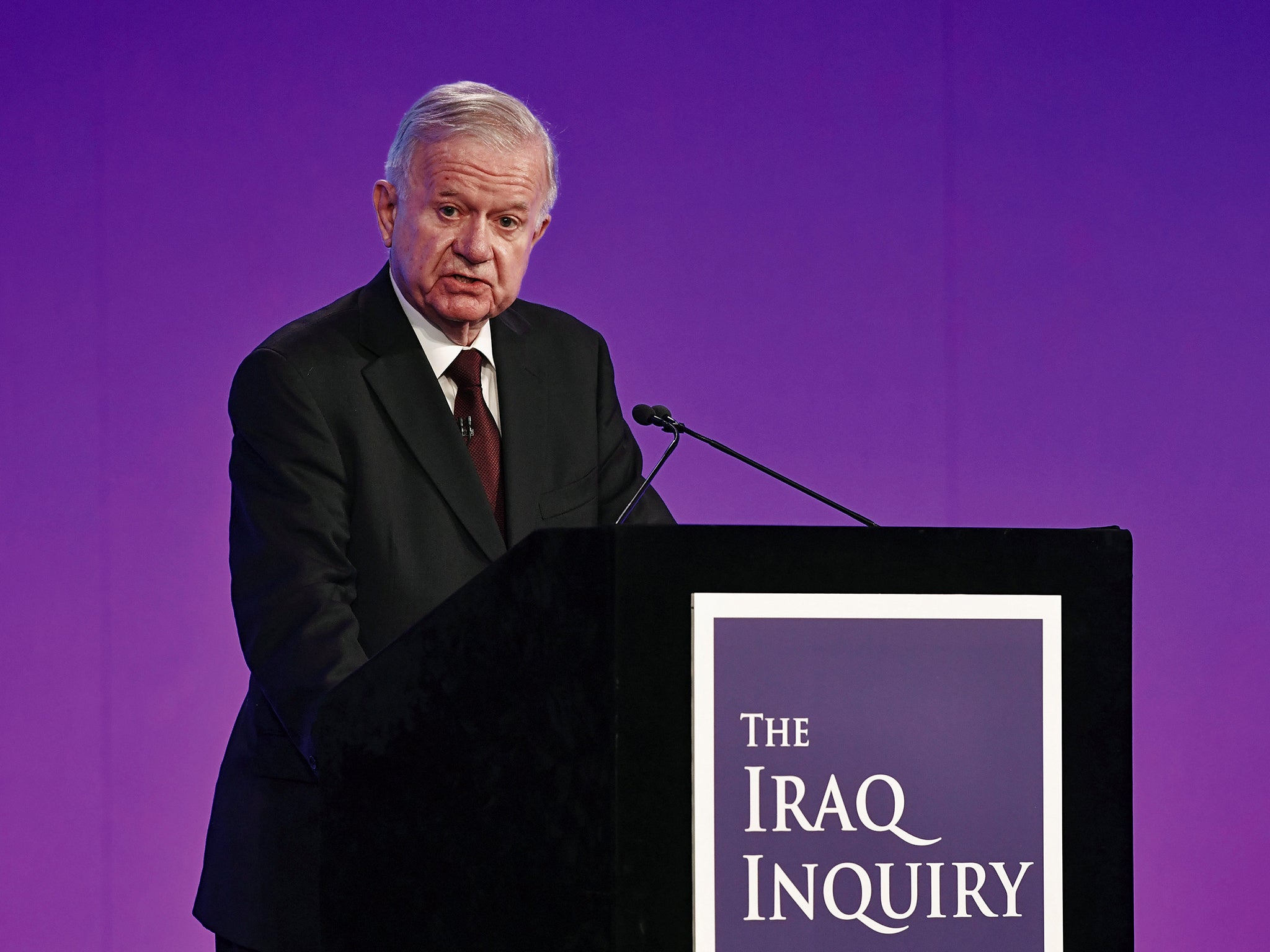Your support helps us to tell the story
From reproductive rights to climate change to Big Tech, The Independent is on the ground when the story is developing. Whether it's investigating the financials of Elon Musk's pro-Trump PAC or producing our latest documentary, 'The A Word', which shines a light on the American women fighting for reproductive rights, we know how important it is to parse out the facts from the messaging.
At such a critical moment in US history, we need reporters on the ground. Your donation allows us to keep sending journalists to speak to both sides of the story.
The Independent is trusted by Americans across the entire political spectrum. And unlike many other quality news outlets, we choose not to lock Americans out of our reporting and analysis with paywalls. We believe quality journalism should be available to everyone, paid for by those who can afford it.
Your support makes all the difference.Jeremy Corbyn has backed a parliamentary motion declaring Tony Blair guilty of “contempt”, following the release of the Chilcot Report.
The motion, set to be tabled by outspoken Conservative MP David Davis, alleges that the former prime minister deceived the House of Commons while making the case for Iraq.
The Labour leader, who this week apogised on behalf of his party for the war despite being having long personally opposed it, said he would “probably” back the motion when asked.
“I urge colleagues to read the Butler Report and the Chilcot Report about the way Parliament was denied the information it should have had, the way there was lack of preparations for the conflict’s aftermath, and the way in which assertions of weapons of mass destruction [were made],” he told BBC One’s Andrew Marr Show.
“Parliament must hold to account, including Tony Blair, those who took us into this particular war. That is surely how a parliamentary democracy works. I haven’t seen [the motion] yet, but I think I probably would [back it].”
The motion is likely to debated in the next few weeks if it is accepted by the Speaker.
The landmark Chilcot Inquiry, which has been investigating the 2003 invasion since 2009, said last week that Mr Blair’s intelligence case for the attack on Iraq was “not justified”.
Mr Corbyn’s backing comes after John Prescott, the deputy prime minister at the time of the invasion, said Mr Blair had led Parliament into backing an illegal war.

Writing in the Sunday Mirror newspaper, Lord Prescott said that following evidence in the Chilcot Report he had come to the conclusion that the war was illegal.
“I will live with the decision of going to war and its catastrophic consequences for the rest of my life,” he wrote.
“In 2004, the UN secretary-general Kofi Annan said that as regime change was the prime aim of the Iraq war, it was illegal. With great sadness and anger, I now believe him to be right.”
Mr Davis, who is tabling the motion, also told the Andrew Marr Show: “I'm going to put down a contempt motion, a motion which says that Tony Blair has held the House in contempt. It's a bit like contempt of court. Essentially by deceit.”
He added: “If you look just at the debate alone, on five different grounds the House was misled, three in terms of the weapons of mass destruction, one in terms of the UN votes were going, and one in terms of the threat, the risks. He might have done one of those accidentally, but five?”
Overall Sir John Chilcot, who chaired the Iraq Inquiry, was damning in his verdict on the invasion.
“We have concluded that the UK chose to join the invasion of Iraq before the peaceful options of disarmament had been exhausted. Military action at that time was not a last resort,” he said on Wednesday.
“We have also concluded that the judgements about the severity of the threat posed by Iraq’s WMD were presented with a certainty that was not justified.
“Despite explicit warnings the consequences of the invasion were underestimated and the planning for Iraq after Saddam Hussein were wholly inadequate.”

Join our commenting forum
Join thought-provoking conversations, follow other Independent readers and see their replies
Comments